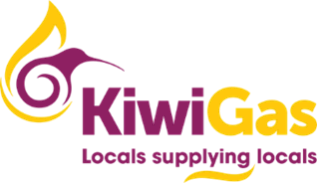Tenant information guide
Welcome to your new home
Thank you for choosing to rent with Real Property Management
To ensure a successful, stress free tenancy, we have put together some useful information to help you understand your obligations and responsibilities.
We want to make sure you are comfortable and happy in your new home and to let you know that we are here to help make your tenancy a positive and happy experience.
Please take a moment to review the contents of this guide and if you have any questions, feel free to contact your Property Manager.
Contents
Contact Information
Your property manager is your first point of contact.
If your property manager is away, and you have reported maintenance correctly, another staff member will be able to attend to this.
If you email your property manager while they are aware, you will receive an auto rely with instructions on who to contact.
Visiting our office
Visits to our office are by appointment only.
If you wish to visit our office, please phone ahead to make an appointment to ensure the person you need to speak to is available.
We are located at Unit 4, 12 Princess Street, Riccarton, this is on the corner of Princess and Clarence Streets.
The entrance is off Clarence Street and there is a parking bay right in front of the office or visitor parking at the rear, off Princess Street.
Your contact information
If your contact information changes during your tenancy you are legally required to inform us within ten working days, this includes the following:
• Name
• Email address
• Address for service
• Phone number
Please ensure you notify your property manager promptly so we can update our records.
The Residential Tenancies Act 1986
The Residential Tenancies Act 1986 is administered by the Ministry of Business, Innovation and Employment and outlines the rights and responsibilities of both tenants and landlords who are entering into a tenancy on a New Zealand property.
The best way to avoid issues during your tenancy is to communicate regularly with your property manager, addressing any problems as soon as they arise.
You also have legal rights and responsibilities under the Residential Tenancies Act 1986, and it is important that you understand and adhere to these.
The Act states that as a tenant you must:
- Pay the rent on time
- Keep the property reasonably clean and tidy
- Advise your landlord of any damage or required repairs immediately
- Arrange and pay for your own utilities eg: power, gas and internet
The Act states that as a tenant you must not:
- Stop paying rent for any reason
- Damage the premises
- Disturb the neighbours or the landlords’ other tenants
- Make any alterations to the property without the landlords written consent
- Use the property for any unlawful purpose
- Have more than the maximum number of occupants listed in the tenancy agreement
- Have a pet at the property, unless this is specified in your tenancy agreement
Rent
It is your legal responsibility to pay your rent on time, as set out in your tenancy agreement.
Paying rent
Rent is required weekly, on the same day of the week that your tenancy commences.
If this doesn’t align with your regular pay date from your employer or other income source, please talk to us about this. A one-off payment can be made at the start of your tenancy to move your due date so that it matches up with your pay day.
Details on what you need to use for the reference, code and particulars are specified both in your tenancy agreement and on the welcome letter given to you when you collect keys.
Joint and several liability
If there are multiple tenants and one of them causes the rent payment to be missed or short, all other tenants are responsible for ensuring the fill payment is made.
The other tenants will be liable for the debt if the offending tenant fails to make payment.
Rent arrears
If you’ve missed a payment, or you’re having difficulty paying, you must contact your property manager immediately to let them know.
You should pay whatever you can straight away. A part payment is better than no payment at all.
You will receive a 14 day notice asking you to remedy the arrears while continuing to meet your obligation to continue paying your rent.
Failure to comply with the 14 day notice could lead to an application being made to the Tenancy Tribunal which may have an adverse effect on your tenant rating.
Rent reviews and increases
For both fixed-term and periodic tenancies, rent is reviewed annually and can be increased once every 12 months.
The law does not limit how much Landlords can increase rent by, providing it is not above ‘market rent’.
You will be given at least 60 days’ notice, in writing of a rent increase.
Rent in advance
The concept of paying rent in advance is one that is commonly misinterpreted. It often causes confusion, particularly at the end of tenancy when tenants often believe that they have paid a lump sum up front meaning they don’t need to pay rent for the final week of their tenancy.
Rent in advance is in fact the obligation of a tenant to pay rent before it becomes due.
Here is an example:
We have a tenancy that begins on Thursday 10 March. The tenant has paid their first week rent in advance. This means that the tenant has paid for the period of Thursday 10 March to Wednesday 16 March inclusive, in advance.
The next rent payment is due on Thursday 17 March. This payment covers the next period through to Wednesday 23 March.
We generally pay for someting before we use or consume it and paying rent is no different.
Maintenance
Maintaining the property
As a tenant, it is your responsibility to keep the property ‘reasonably’ clean and tidy. We don’t want to encroach on your lifestyle or tell you how to live, however we do have an obligation to ensure the property is maintained and that all laws and health and safety regulations are adhered to.
Keeping on top of your cleaning and maintenance will ensure positive feedback at your routine inspections and keep you in good stead with your property manager.
Reporting emergency maintenance
Emergency maintenance must be reported by phone immediately.
An emergency is:
- Something that leaves you without power or water
- Something that affects the security of your home
- Something that will cause damage if left unattended eg: a burst pipe
During business hours phone our office:
03 341 6523
After hours, phone your property manager.
If you can't get hold of your property manager, please phone Robyn Fantham.
Reporting non-emergency maintenance
Non-emergency maintenance must be reported online via our website link to Tapi.
Follow the simple steps to lodge your maintenance request so that we can begin the repair process.
Important
Please ensure you allocate your request to your specified property manager, either Taylor, Robyn or Vanessa.
If you have multiple maintenance issues, please report each one individually
Once you have submitted your request you will receive an email with a link to Tapi, where you will be able to see the progress of your request.
You may also receive another notification to remind you of the appointment with the tradesperson.
It is vital that all non-emergency maintenance is
lodged via Tapi.
If your property manager is away, another staff member can review the job and send a work order or take any necessary action on their behalf.
Condensation and Mould
While living in your rental property, it is your responsibility to adequately heat and ventilate the home, to prevent dampness, condensation, and mould.
Controlling condensation and mould
Mould, also known as mildew, is a type of fungus that grows in damp areas inside and outside the home.
Small amounts of mould are common in most New Zealand homes, however when mould is left to grow in large quantities it can cause serious health problems.
Mould needs moisture to live, and the most common cause of excess moisture is condensation.
Condensation is dampness on walls, ceilings, floors, windows or windowsills. It happens when wet, warm air such as cooking or bathroom steam (or even the warm air from your breathing), touches cold surfaces. This causes water to form.
The most important factor to stop mould growing, is to reduce the moisture in your home.
There are lots of ways you can reduce moisture:
- Wipe off condensation that occurs on surface such as walls and windows
- Open windows throughout the house so the air can circulate, this can be done for ten minutes in the morning while getting ready for the day and for longer periods when you are home during the day
- When showering, open the bathroom window and always use the extractor fan
- Where possible always use a dry heat source such as a heat pump or log burner and avoid gas heaters
- Dry washing outside wherever possible
- When cooking, open a window and always use the extractor fan where present
Please Note: A clothes drier is not permitted indoors unless it is vented externally or is a condenser drier
Routine Inspections
Routine inspections
The purpose of a routine inspection is to check if any maintenance is required and to meet the owners insurance obligations.
Routine inspections are carried out approx every 13 weeks. An inspection letter will be sent to you prior to the inspection, advising the scheduled date. You are most welcome to be present during this inspection, however if you are not home, we will exercise our right under section 48 2(b) of the Residential Tenancies Act 1986 to enter and carry out the inspection.
During the inspection it is important to us that we respect your privacy and quiet enjoyment. However, as part of the inspection process we will be required to look in cupboards to ensure that there are no leaks or dangerous hazards.
We also need to check floor and window coverings so please ensure that the property is generally clean and tidy with everything put in its place.
Preparing for an inspection
To ensure that the routine inspection is a success, with positive feedback, we have put together some tips to help you prepare – see below.
Inspection feedback
If you are home during the inspection, we may discuss with you, any items that need to be addressed. If you aren’t home, we send you a follow-up email.
Changing your inspection
We try to accommodate everyone’s requests; however we are in the area on the day of the inspection so it is unlikely that it can be changed.
Routine Inspection Tips
Be prepared
We will endeavor to give you at least 7 days’ notice of your routine inspection, which allows you plenty of time to prepare.
Begin with the small tasks and do a few things each day leading up to your inspection date, this will save you rushing around the night before.
First impressions
A first impression can go a long way.
Ensure that your entrance area is clean, tidy and free from rubbish and that all areas are easily accessible for your property manager to view.
De-clutter
Benchtops and vanities should be cleared of clutter, that doesn’t mean everything, but putting a few things away into drawers or storage containers can make a huge difference to the overall appearance of your property.
Floors should be as clear as possible with all belongings tidied away. Kitchen, bathroom and laundry cupboards need to be accessible to check for leaks, along with ovens and showers which need to be photographed for routine monitoring.
General to-do's
- Vacuum and mop floors
- Wipe down windowsills and skirting boards
- Wipe down cupboard and drawer fronts
- Thoroughly clean the oven, stove top and extraction unit
- Wipe down all benchtops
- Remove any dust, cobwebs and fly dirt
- Thoroughly clean the shower, bath, vanity and toilet
- Mow lawns, weed and tidy gardens (if this is your responsibility)
- Remove any rubbish
What we're looking for
Overall, we’re looking to see that you are keeping the property reasonably clean and tidy and not causing any damage.
Tenancy Agreements
Fixed term tenancy
A fixed term tenancy is a legally binding agreement between two parties for a fixed period of time, and cannot be ended by either party giving notice
A fixed term tenancy ends when the tenant give the property manager notice that they will be leaving at the conclusion of the fixed term.
Ending a fixed tenancy early
If you wish to end your fixed term early (also known as a lease break), you can make an application to your property manager for early release.
A fixed term tenancy may be ended by mutual agreement if all tenants named on the agreement agree to it and the landlord gives consent, in writing.
The landlord can impose reasonable conditions and the tenant may be required to cover all actual and reasonable costs associated with finding a new tenant as well as continuing to pay rent up to and including the day before a new tenancy starts.
Periodic tenancy
A periodic tenancy is not set for a pre-determined length of time and therefore does not have an end date. It ends when either the tenant or Landlord give the correct notice.
If you wish to end your periodic tenancy, you are required to give 28 days’ notice in writing.
Landlord giving notice
Currently, a Landlord can only give notice for limited and specific reasons and this must be in writing.
90 days notice can be given, where one of the following applies:
- The premises is to be put on the market within 90 days
- The owner has sold unconditionally and the sales and purchase agreement requires vacant possession of the property.
The landlord is going to extensively repair, refurbish or redevelop the property.
- The landlord is going to demolish the property.
63 days notice can be given where:
- The owner of the premises requires the premises, within 90 days after the termination date, as the principal place of residence for at least 90 days for the owner or a member of the owner’s family.
Important Information
We have put together a range of information to assist you throughout your tenancy.
This includes general information on a variety of topics as well as specific tips on how to prevent damage as well as how to trouble shoot issues.
GENERAL INFORMATION
Car parking
You are only permitted to park vehicles in the designated areas that form part of your tenancy.
Cars are not to be parked on lawns or grass verges and must not block any shared driveways.
Carpet
Your carpet may have a nylon component. If so, it will burn very easily. Therefore, you should not iron on the carpet or place anything hot on it, eg: hair straighteners.
If you spill anything on the carpet, clean it with cold water only. If a stain remains you should have this professionally treated as soon as possible. Be aware that supermarket stain removers can “set” the stain, rather than removing it.
Cleaning
You are required to keep your property reasonably clean and tidy at all times. Regular general housekeeping with assist with this.
We suggest regularly cleaning fly dirt from door frames, ceilings, light shades, etc, as it is very hard to remove if left.
Curtains
 Button
ButtonPlease do not wash curtains or net curtains, please discuss this with your property manager first.
Fibre
If fibre has been installed at you property there will be an ONT box attached to the wall. This belongs to the property so please ensure you leave this, and the power cable, when you vacate.
Gas leak
What to do if you smell gas or suspect a leak:
1. If there is a gas fire, call 111 immediately
2. Turn off your gas supply if it’s safe to do so. To turn off your gas supply, turn the cylinder valve clockwise until it closes completely
3. Open windows and doors
4. Keep items that ignite away from the area (cigarettes, vapes and flames), don’t touch any electrical appliances, including mobile phones, and don’t turn any switches on or off as this may cause a spark
5. Evacuate the premises and use a phone away from the area (a neighbouring property if possible) and call your gas supplier
6. Don’t turn on your gas supply or appliances until a registered gas fitter has visited and ensured your area is safe.
Grounds and gardens
Your tenancy agreement will specify what you are responsible for when it comes to ground maintenance.
Lawns and gardens are to be kept neat and tidy at all times, with garden waste and lawn clippings disposed of appropriately. Paths, driveways and outdoor areas are to be kept free of leaves, debris and rubbish.
Insurance
The landlord is responsible for insuring the property but not the tenants’ possessions.
We highly recommend taking out comprehensive contents insurance to cover any damage to your possessions by an event that occurs at the property eg: fire, power outage or flood.
Talk to your insurance company about the best options to ensure you are protected.
Keys
All keys provided with your tenancy will be documented and signed for as part of your tenancy agreement.
No further keys are to be cut without your property managers permission.
If keys are not returned at the end of the tenancy, the locks may need to be changed and the cost of this deducted from the bond.
Leaks
You must advise us immediately if you discover anything leaking.
Occupancy
The maximum number of tenants permitted to live at the property will be clearly explained to you and documented in your tenancy agreement.
Only the number of tenants approved to live at the property may reside there at any one time.
Painting, decorating and renovating
You must obtain written consent before making any changes to the property. This includes, but is not limited to, painting, adding or removing fixtures, installing TV brackets, changing curtains.
Picture hooks
A reasonable amount of picture hooks is allowed, please ensure these are installed correctly and left behind when vacating.
Pets and animals
Pets may only be kept at the property if you have been given permission and this is documented in your tenancy agreement.
If you are found to have an unauthorised pet on the property you will be in breach of your tenancy agreement, and this could affect your ability to continue living in the property.
Rubbish
It is a tenant’s responsibility to remove ALL rubbish from the property throughout the tenancy. This includes lawn clippings and garden waste if you are required to maintain the grounds.
You can find your bin collection day on your local Council website.
Smoke alarms
Working smoke alarms or detectors are compulsory in all rental properties.
Both landlords and tenants are responsible for maintaining the smoke alarms throughout the duration of the tenancy.
Landlords must ensure smoke alarms:
- Are compliant with the RTA requirements
- Are working at the beginning of each new tenancy
- Remain in working order throughout the tenancy.
Tenants must:
- Not damage, remove or disconnect a smoke alarm
- Let your property manager know as soon as possible if there are any problems with the smoke alarms.
If you fail to meet your obligations around smoke alarms, you could be fined up to $3,000.
Utilities
It is the tenant’s responsibility to set up utility accounts eg: power, gas, internet. These accounts must be in the tenant’s name and be paid for by the tenant.
Ventilation systems
If your property has a ventilation system, it must be left on at all times.
TIPS FOR PREVENTING DAMAGE
Bath mats
Leaving a wet bath mat on the floor can stain the vinyl.
Ensure you hang your mat up to dry after every shower.
Bench tops
Bench tops can be easily damaged when hot items are placed directly on them. Ensure you place pots, trays and any other hot items on a trivet or chopping board, so the bench is protected at all times.
Burns on carpet
To avoid burning the carpet do not place any hot items such as hair straighteners or irons on or near carpeted areas at any time.
Candles
Do not leave candles burning unattended as this is a fire hazard.
Buring candles constantly and for long periods of time can cause damage to walls and ceiling with a build up of black smoke residue.
Chairs
Having chairs pushed hard up against walls can cause marks or damage.
Ensure there is space left between chairs and walls to avoid this.
Curtains
Damage to curtains can occur when there is furniture against them causing them to be pushed into wet windows, this causes mould.
Curtains can also be damaged if they are left flapping around outside open windows or doors.
Hairspray
 Button
ButtonNever use hairspray while you have an extractor going. The hairspray will be drawn up into the ducting, causing a sticky residue which can affect the operation of the extractor.
Mattresses
Placing a mattress directly onto the floor can cause damage, especially to carpeted or wooden floors.
All mattresses must be placed on an appropriate base to avoid damaging the floor.
Oven element
If you have a concealed element in the bottom of your oven you must not place anything in the bottom of the oven while it is on. This includes foil trays.
If you can see the element, it’s okay to place a tray underneath it. If you cannot see the element, you will damage the bottom of the oven by placing things over it.
Pot plants
Pot plants placed on hard surfaces can leave a circular indent, and when placed on carpet you run the risk of damaging the carpet underneath.
Please do not place pot plants directly on the floor, place something underneath the pot such as a saucer or plastic tray and check this regularly to ensure it is containing any moisture.
Vermin
The Landlord will ensure the Property remains free from the presence of fleas, rats, mice, cockroaches, ants and flies (“vermin”) for a period of one month after the tenant takes possession.
After that time, it is the tenants responsibility to take all necessary steps to remove vermin from the property.
Cleaning Instructions
Cleaning your heat pump
During the months that your heat pump is being used regularly, it is very important that you clean the filters at least once a month.
The heat pump will run much more efficiently with clean filters.
1. Ensure the heat pump is turned off, then open the front cover of the unit by pulling gently from the sides

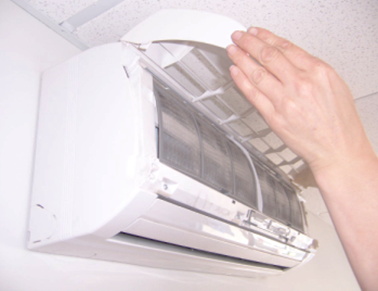
2. Remove the filters (there are usually two) by sliding them down
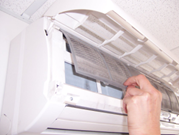
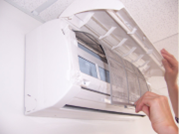
3. Vacuum the filters
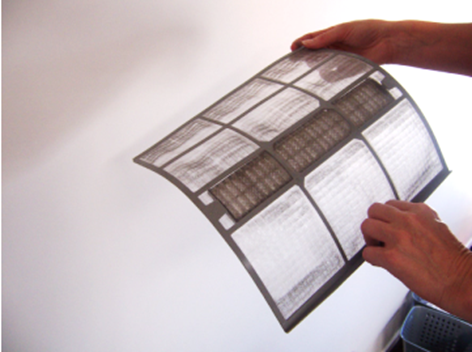
4. Slide the filters back into position
5. Close the cover
Cleaning your shower waste
Regular cleaning of your shower waste trap is vital to ensure there is no build up of waste and your shower drains properly.
1. Remove the shower trap, dispose of all wasye and rinse out with water
2. Remove the bucket and also clean and dispose of waste
3. Pour a bucket of water down the waste before putting the bucket and trap back on
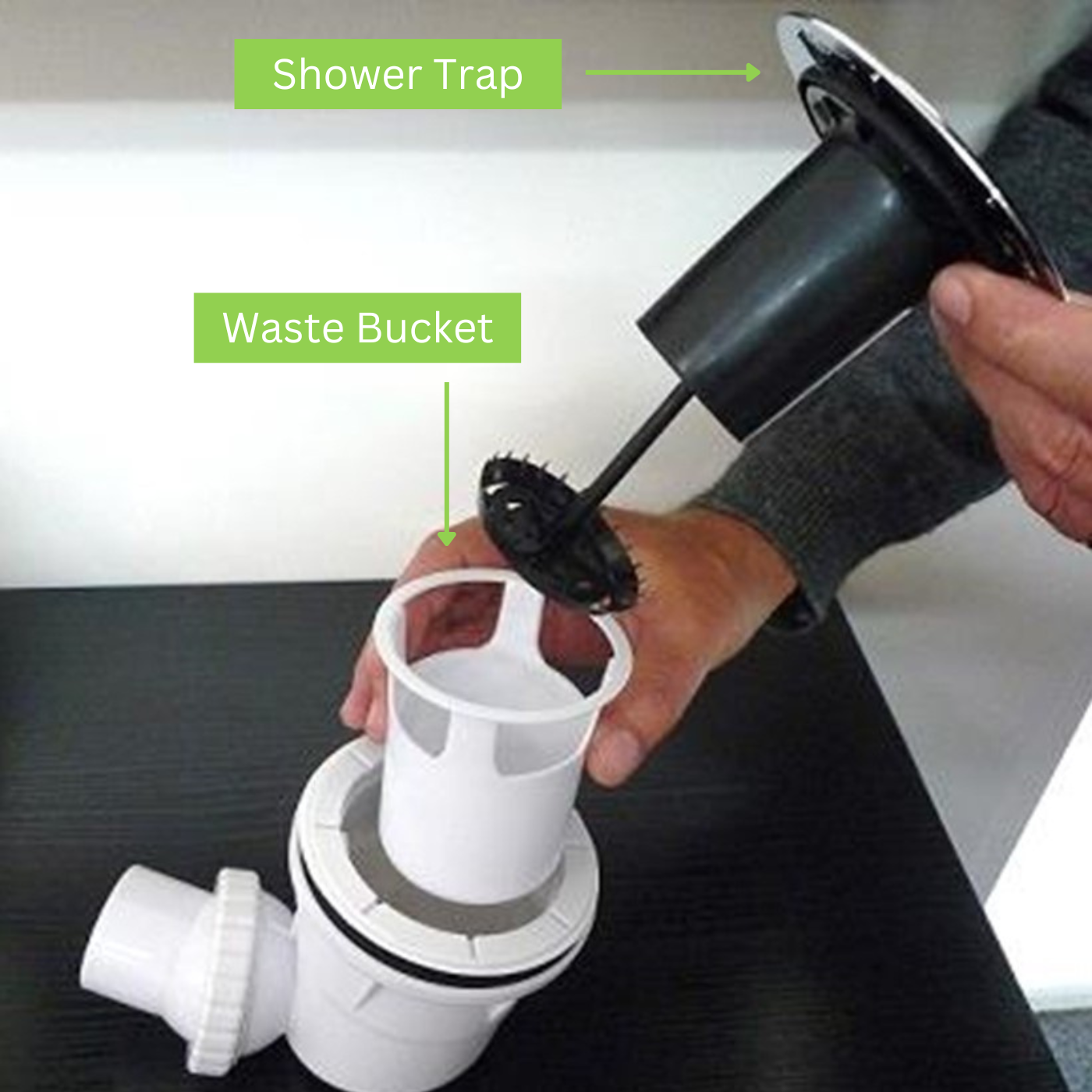
IMPORTANT
Only remove the waste tray and the bucket – DO NOT unscrew anything.
DO NOT shower without having the waste tray and bucket in place.
Water Rates
Christchurch
For properties in Christchurch, tenants are liable for excess water consumption and will incur charges for all water above the daily allowance. Such water charges being defined as greater than 900 litres per day, supplied to the tenancy premises.
This will show whether you’re a high, above average or low user and indicate charges that may apply to you.
If we receive an invoice for excess water charges, we will email you a copy and request that payment is made within 14 days.
To check your usage, click on the button below.
Selwyn
In the Selwyn District, all water is paid for, through base and volumetric charges. The current volumetric water charge (what you pay for each cubic metre) is $0.80. The Council issue water invoices every six months covering how much water you’ve used, based on readings of your water metre.
When we receive an invoice for water charges, we will email you a copy and request that payment is made within 14 days. Currently these are issued twice a year in June and December.
TYPICAL WATER USAGE FOR HOUSEHOLD ACTIVITIES
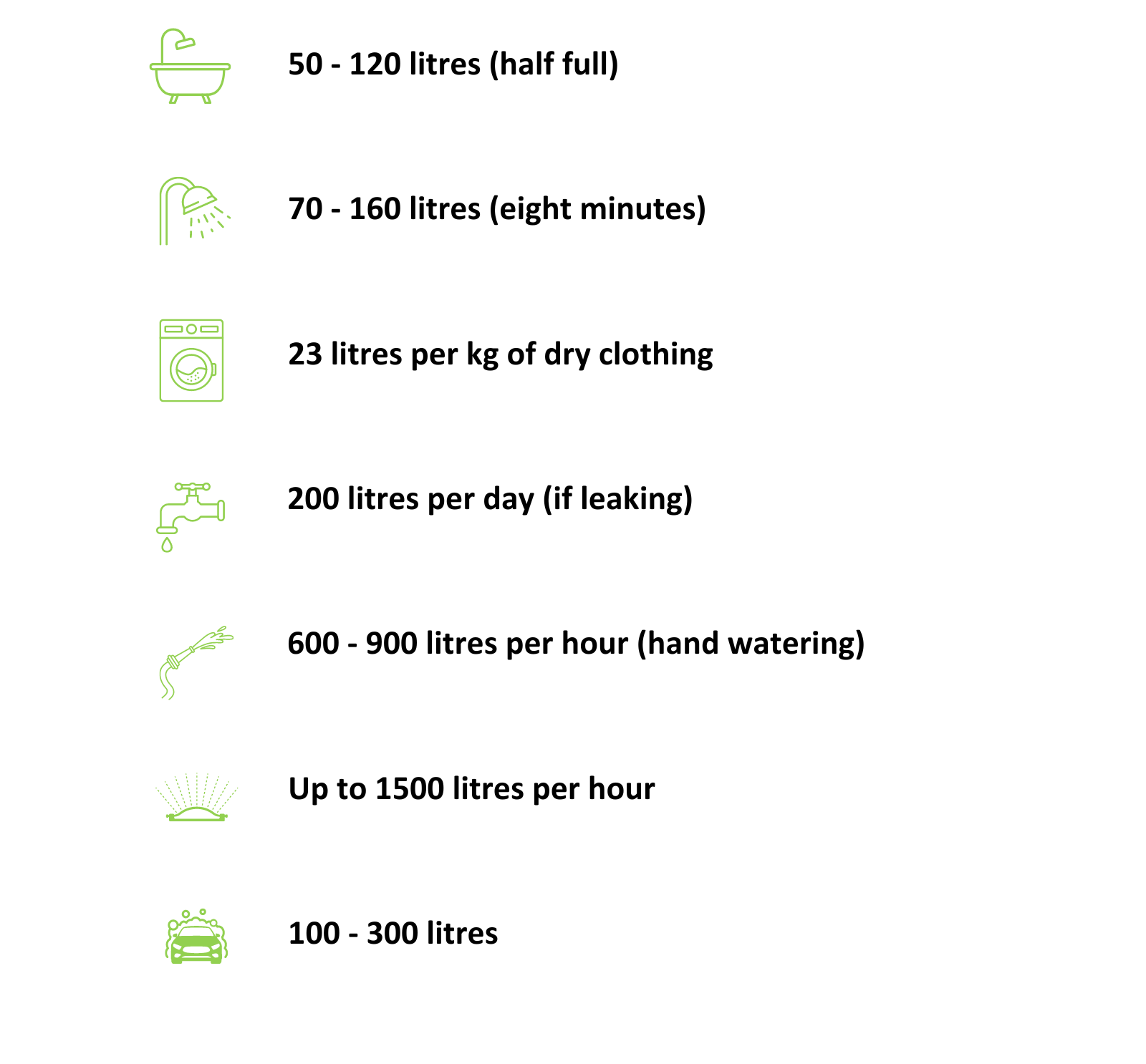
TIPS FOR CONSERVING WATER
- Report leaks promptly to your Property Manager
- Turn off the tap when brushing your teeth
- Use the plug if you’re rinsing dishes or clothes and part fill the sink instead of running the water throughout the process
- Fill a jug of drinking water – keep a jug of water in your fridge in summer so you don’t have to run the tap to get the water cold enough
- Don’t run appliances half empty – fully load your dishwasher and washing machine before running them and use the eco settings to save both water and energy
- Take showers not baths – turn the shower on only when you’re ready to get in and keep them as short as possible
Gas Accounts
If your property has gas for hot water or an appliance and relies on 45kg outdoor bottles, you will need to set up a gas account in your name.
Gas bottles are supplied by the gas provider for an annual hire, and refilled when you order a new bottle.
The Residential Tenancies Act requires the landlord to pay for the annual bottle hire, and the tenant to pay for the gas they use.
Some retailers will split this into two different accounts/invoices, which is our preference.
Our preferred retailer is KiwiGas, we have found them to offer the best price to date and they are able to invoice us directly for bottle hire, making less work for tenants.
Click the icon below to visit their website:
The following are some of the other companies who will also facilitate this:
· Contact/Rockgas
· Elgas
· Ongas
If you select one of these companies, please tell them that you just need to set up a “tenant supply account” as you are renting. Please then advise us which company you have chosen, and we will set up a landlord account so your bottles can be delivered.
Please note: Your bottles cannot be delivered until we have set this up, so please let us know your chosen provider asap.
Other companies such as Genesis will not split the landlord/tenant accounts and will charge you monthly for the bottle hire. In this case, we don’t need to set anything up, but you will need to forward us copies of your invoice, together with your bank account each time you need reimbursement.
This is generally done every three months, although some tenants choose to do it annually.
Moving Out
Preparing to vacate the property
Here is a list of important things that you need to do in preparation for the end of your tenancy:
- Ensure the property is thoroughly cleaned
- Make sure any damage is repaired
- Remove any 3M or other self-adhesive hooks and ensure any damage caused by these is also repaired
- Ensure your gardens are tidied, lawns mowed and all green waste removed (if you are responsible for ground maintenance)
- Remove all rubbish, empty and wash out all council bins
- Ensure you have all keys and garage door remotes ready to handover
- Have your bond refund form filled in, ready to be signed and submitted
Once the tenancy has ended, your Property Manager will conduct a bond inspection to ensure the property has been left clean and tidy and that nothing is damaged or broken.
Some general wear and tear may be expected but intentional or careless damage is not acceptable and must be rectified at the tenants expense.
If everything is in order, we will ask you to return the bond form and keys to our office. If there is anything further that needs to be done, we will communicate this to you and outline our expectations.
If there is any cleaning, gardening or repairs needed that you are unable to do we have tradesman we can recommend – see below for more details.
Council Rubbish Bins
Council rubbish bins are provided for use during your tenancy. Tenants are responsible for looking after the bins, putting them out on the correct day and bringing them back in once emptied, and for reporting any damaged or missing bins to their property manager immediately.
Missing or Damaged Bins
Handy Hints
Collection Days
Missing Bins
If you think your bin is missing, please act quickly as the council have a very strict time frame for reporting this.
Make sure you check the street and with your neighbours in case bins have been mixed up.
If you still can't locate your bin, let your property manager know as soon as possible. The council has to be notified of a missing bin within 24 hours of the collection day, otherwise there is a cost for replacement.
Damaged Bins
If your bin is damaged, please notify your property manage and provide photos of the damage as well as the serial number so they can arrange for the damage to be repaired.
- Don't overload your bins and ensure the lids can be closed flat
- Have your bins out by 6am on collection day and bring them in as soon as possible after they're collected
- Place bins on the footpath or grass verge. facing the road (arrows on the lid indicate the correct placement) and positioned so that the trucks can reach them - do not place bins on the road
- Allow at least half a metre clearance between adjacent bins and other obstructions such as mailboxes, fences and trees
- Keep your bin identifiable by ensuring the logo and serial number are visible
- Extra items placed next to, or on top of your bin will not be collected, (except for official council rubbish bags)
Recommended Tradespeople
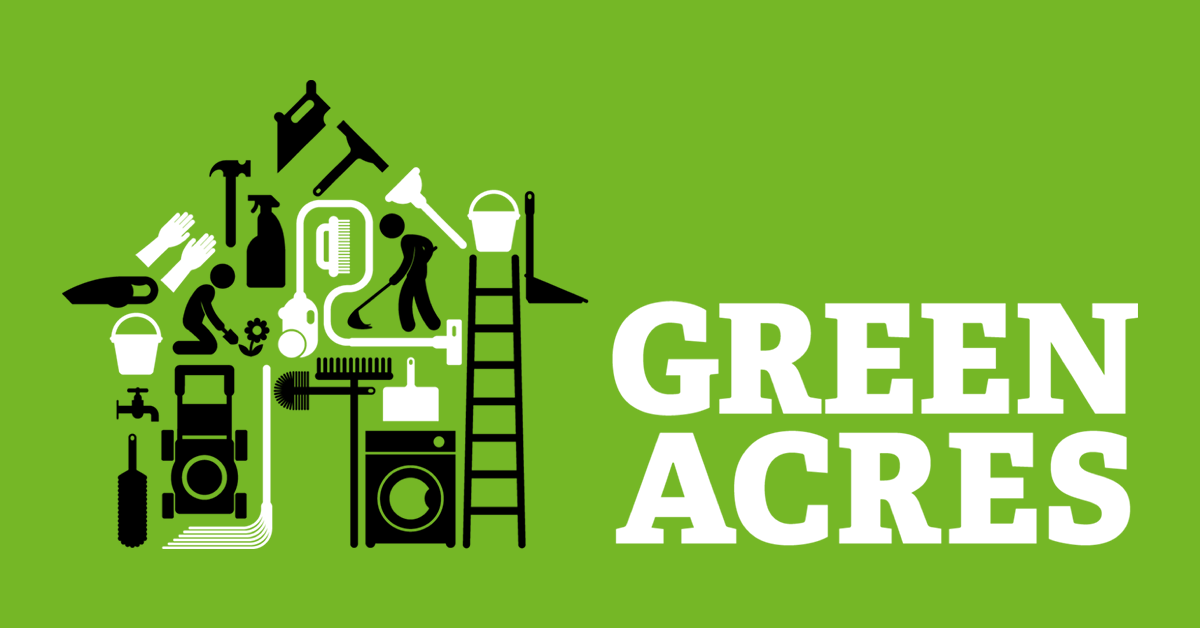
021 288 9701

027 583 8018

021 227 3243

0800 353 555
027 667 1909
DISCLAIMER
The information contained in this guide is intended as a reference only. It is the responsibility of the tenant(s) to ensure they are aware of their obligations under the Residential Tenancies Act and to keep copies of all relevant documentation signed with Real Property Management.
For further advice or information, you can contact Tenancy Services – tenancy.govt.nz / 0800 836 262.
All information is correct at the time of publication.


